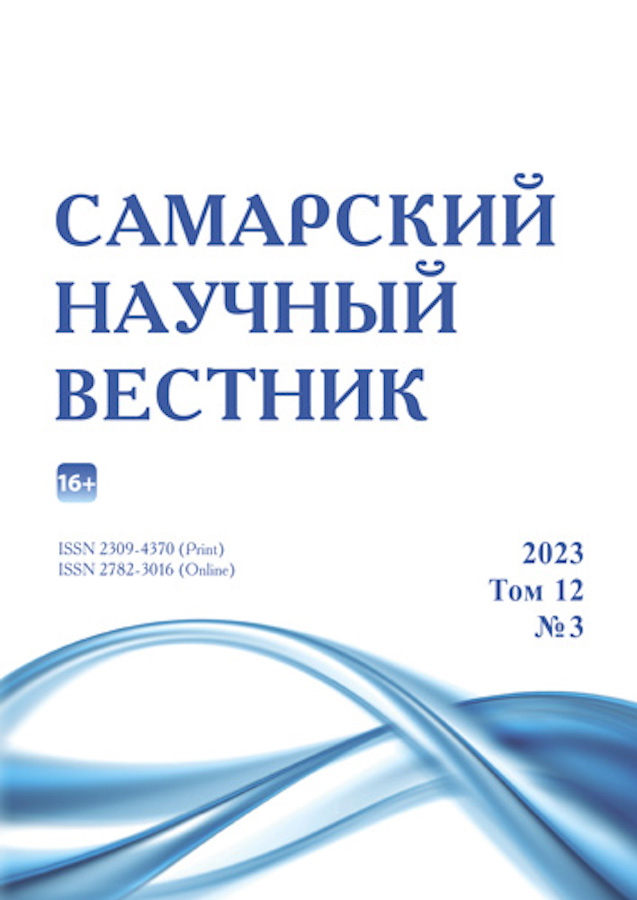The specifics of teaching a foreign language to false beginners in non-linguistic universities
- Authors: Ermakova Y.D.1, Kapustina L.V.2, Elizarova E.A.3
-
Affiliations:
- Samara State Transport University
- Samara State University of Economics
- Samara State Technical University
- Issue: Vol 12, No 3 (2023)
- Pages: 246-250
- Section: Pedagogical Sciences
- URL: https://journal-vniispk.ru/2309-4370/article/view/253192
- DOI: https://doi.org/10.55355/snv2023123304
- ID: 253192
Cite item
Full Text
Abstract
Despite recent active popularization of foreign languages in our modern society, the issue of teaching languages in non-linguistic universities still remains relevant, especially when a considerable proportion of newly enrolled students define their level of foreign language proficiency as false beginners. The authors of the study analyzed a number of national and foreign scientific papers on the issue of teaching false beginners in a non-linguistic university and noted that this issue has not been resolved yet within the context of the methodology of teaching foreign languages. Nowadays, there is an insufficient number of experiments on teaching false beginners aimed at improving their language training efficiency. The purpose of the study is to identify the features of false beginners’ language proficiency and to develop a hybrid model of teaching false beginners in a non-linguistic university. Methods of generalization and systematization (analysis of scientific literature on the research topic), abstract modeling of the situation, observation and experiment were used in the study. The research will be interesting for foreign language teachers who work with students of non-linguistic programmes of study.
Full Text
##article.viewOnOriginalSite##About the authors
Yulia D. Ermakova
Samara State Transport University
Email: ermjul@yandex.ru
candidate of pedagogical sciences, associate professor of Linguistics Department
Russian Federation, SamaraLiubov V. Kapustina
Samara State University of Economics
Author for correspondence.
Email: lkap@inbox.ru
candidate of pedagogical sciences, associate professor of Linguistics and Foreign Business Communication Department
Russian Federation, SamaraEvgenia A. Elizarova
Samara State Technical University
Email: evgenka56rus@mail.ru
candidate of pedagogical sciences, associate professor of Foreign Languages Department
Russian Federation, SamaraReferences
- Ванягина М.Р. Оценивание уровня владения иностранным языком в высшей военной школе // Вестник Тамбовского университета. Серия: Гуманитарные науки. 2021. Т. 26, № 195. С. 107–118. doi: 10.20310/1810-0201-2021-26-195-107-118.
- Павловская И.Ю., Гребенников А.О., Креер М.А. Разработка концепции единого экзамена по профессионально-ориентированной иноязычной коммуникативной компетентности выпускника российского вуза: задачи и решения // Тестология. 2021. № 3. С. 14–33.
- Ненюк Е.А. Специфика преподавания иностранного языка в группах с «абсолютными» и «ложными» начинающими // Мир науки, культуры, образования. 2020. № 1 (80). С. 79–82. doi: 10.24411/1991-5497-2020-00033.
- Байдикова Н.Л., Никитина Т.Н. Пути преодоления трудностей обучения студентов с уровнем А1 английскому языку в неязыковом вузе // Международный журнал гуманитарных и естественных наук. 2023. № 4–1 (79). С. 14–17. doi: 10.24412/2500-1000-2023-4-1-14-17.
- Кучерявая Т.Л. Проблемы профессионально-ориентированного обучения иностранному языку студентов неязыковых специальностей // Теория и практика образования в современном мире: мат-лы I междунар. науч. конф. Т. 2. СПб.: Реноме, 2012. С. 336–337.
- Махаева А.К. Профессионально-ориентированный уровень обучения иностранному языку в неязыковом вузе // Молодой ученый. 2015. № 23 (103). С. 979–982.
- Косоплечева Т.А., Коротеева К.Е. Из опыта написания психологически-комфортного для студента корректировочного пособия по английскому языку (уровень «false beginners») // Новый мир. Новый язык. Новое мышление: сб. мат-лов IV междунар. науч.-практ. конф.
- Москва, 3 февраля 2021 г.). Вып. IV. М.: Дипломатическая академия Министерства иностранных дел Российской Федерации, 2021. С. 278–287.
- Сердюкова М.Л. Особенности преподавания иностранного языка псевдоначинающим // Теория и методика преподавания иностранных языков в условиях поликультурного общества: мат-лы VI всерос. науч.-практ. конф. с междунар. уч.
- Красноярск, 5–7 декабря 2017 г.). Красноярск: Красноярский государственный педагогический университет им. В.П. Астафьева, 2018. С. 282–289.
- Bavendiek U. Individual differences in ab initio language learning: working with learners’ strengths // Ab Initio Language Teaching in British Higher Education: The Case of German / eds. U. Bavendiek, S. Mentchen, C. Mossmann, D. Paulus. London: UCL Press, 2022. P. 196–209. doi: 10.2307/j.ctv2m2fvc5.22.
- Suharno S. Edmodo-Aided language exposure to boost false beginners’ language performance // The Tenth Conference on Applied Linguistics and The Second English Language Teaching and Technology Conference in collaboration with The First International Conference on Language, Literature, Culture, and Education. Bandung, 2017. P. 359–364. doi: 10.5220/0007167303590364.
- Shiota K. Effectiveness of collaborative learning for improving false beginners’ grammar skills and self-efficacy // 16th Education and Development Conference. 2021. doi: 10.52987/edc.2021.004.
- Frantzen D., Magnan S.S. Anxiety and the true beginner – false beginner dynamic in beginning French and Spanish classes // Foreign Language Annals. 2005. Vol. 38, iss. 2. P. 171–186. doi: 10.1111/j.1944-9720.2005.tb02483.x.
- Li Q. Measures to reduce foreign language beginners’ communication anxiety // Frontiers in Humanities and Social Sciences. 2023. Vol. 3, iss. 6. P. 69–72. doi: 10.54691/fhss.v3i6.5146.
- Nakamura T. What makes language learners false beginners. Hiroshima, 1997. 11 p.
- Sari F. Expressive oral reading for Indonesian false beginners: a self-modelling approach to automaticity from reading aloud. 2018. 6 p.
- Nissen E. Les specificites des formations hybrides en langues // Alsic. 2014. Vol. 17. doi: 10.4000/alsic.2773.
- Horn M.B., Staker H. Blended: using disruptive innovation to improve schools. Hoboken: John Wiley & Sons, 2014. 336 p.
- Kormos J., Kontra E.H., Csolle A. Language wants of English majors in a non-native context // System. 2002. Vol. 30, iss. 4. P. 517–542. doi: 10.1016/s0346-251x(02)00045-3.
- Тест для определения уровня английского языка [Электронный ресурс] // Отдел культуры и образования Посольства Великобритании в Москве. https://www.britishcouncil.ru/english/online-test.
Supplementary files






